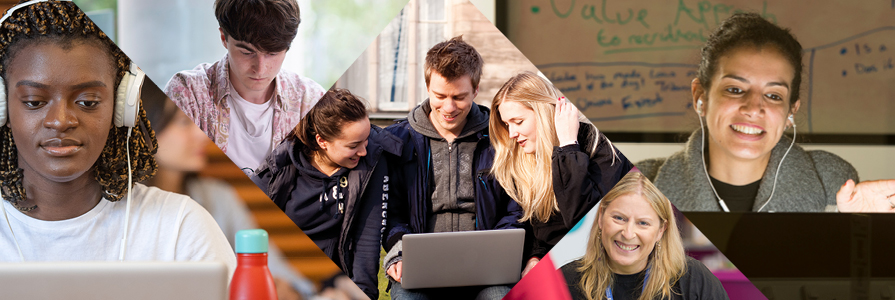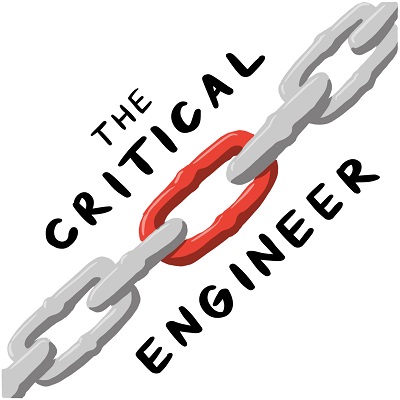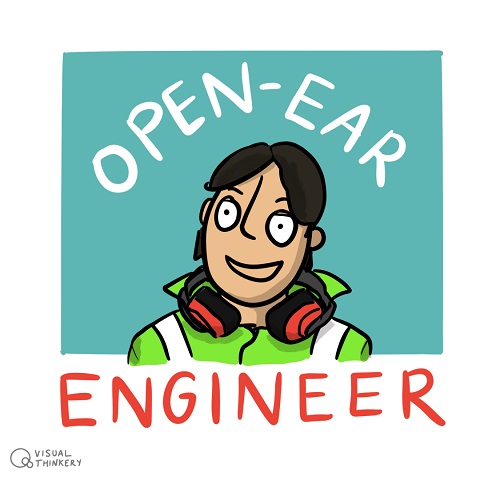SFC news published since 2018. See SFC archived content for earlier news articles.
Paul Fagan describes how West College Scotland, the University of the Highlands and Islands and Forth Valley College have developed their Meta-skills (to help SMEs develop theirs).

In 2019, West College Scotland and its partners, the University of the Highlands and Islands (UHI) and Forth Valley College secured funding from the Scottish Funding Council’s College Innovation Fund to host three regional hack events that would start Scotland’s SMEs on an innovation journey, developing their Manufacturing 4.0 and Meta-skills along the way. We titled our concept – The Critical Engineer; and we were excited about the opportunity and platform to work with partners in academia and industry and support over 150 SMEs from across Scotland.
Our vision has been nothing less than to catalyse a transformational change in the culture of Scotland’s SMEs:
‘ The Critical Engineer is someone already in your organisation. They have the capacity for continuous learning and thrive in an environment of exponential technological change and they are central to help your firm grow and prosper. The Critical Engineer accepts responsibility for their own behaviour and practice, demonstrates an awareness of others that enables her to mobilise and inspire individuals and groups; acting as an agent of positive change’.
The Critical Engineer is someone already in your organisation. They have the capacity for continuous learning and thrive in an environment of exponential technological change and they are central to help your firm grow and prosper. The Critical Engineer accepts responsibility for their own behaviour and practice, demonstrates an awareness of others that enables her to mobilise and inspire individuals and groups; acting as an agent of positive change’.
Paul Fagan, Head of Enterprise and Employability at West College Scotland
And then, Covid19 happened.
This month, Oxford Dictionaries announced that they have expanded their ‘Word of the Year’ to an entire list after an ‘unprecedented’ 12 months. From ‘social distancing’ to ‘super-spreader’, the words were selected to reflect the ‘mood or preoccupations’ of 2020.
In the worlds of education and workplace learning, we were pre-occupied with the ‘new normal’, looking to understand concepts such as ‘lockdown learning’ ‘zoom classrooms’, ‘you’re on mute!’ and, perhaps more sustainably, ‘Meta-skills’.
The latter is a fitting word for 2020, as the word ‘Meta’ derives from Greek and means to look beyond: to change. And what sums up 2020 more succinctly than a longing to look beyond our current situation and change? Through this lens, we have witnessed unprecedented change in how and where we work, learn and live. Change where, if the lines before were becoming blurred before Covid, have now been completely removed. For many, our homes are currently a shared living space, workplace, classroom and holiday destination!
So, just what are ‘Meta-skills’ and how is West College Scotland promoting them in the context of Manufacturing 4.0?
Well helpfully, Skills Development Scotland published a ‘Skills Action Plan 4.0’, identifying and defining twelve key Meta-skills; focus, curiosity, adapting, initiative, leading, collaborating, creativity, sense making, critical thinking.
During our own development journey, I have often reflected on the Meta-skills that we have used and developed – both within our college teams and in collaboration with our partners and stakeholders. I believe that, at some point, we have used and developed all twelve, however, by way of illustration, I would like to share the Top 6 Meta-skills we have used to provide us with the capability and confidence to create a high value project about cultivating a modern, thriving workplaces; through developing our own.
1. Adapting
Obviously, at a practical level, we can no longer host events in a physical space. Like many in education and work, we have moved completely online to develop, create and host our events. This has opened up a different world for us, with challenges we didn’t factor beforehand and opportunities to create a more dynamic learning experience and assets, sustainable beyond the events themselves. It has required more investment in IT back functions and more thought in how to engender active participation from hundreds of workplaces and homes; whilst, to build trust with our audience, were also stable and safe.
A turning point was our decision to partner with Louise Jones, Founder of Think Visual. Louise has acted as our creative digital technology partner, firstly building a stable events platform that can support interactive learning tools, video and online participation functions. Second, Louise has been instrumental in fully integrating our social media tools for promotion, participation and learning: creating what will be a lasting legacy of an online library of digital records, video tutorials and discovery sessions, and podcasts. This will grow with each event and beyond.
2. Innovation
The Critical Engineer regional events are not about showcasing the latest Manufacturing 4.0 technology, for which SMEs may or may not be able to purchase or have the skills to use. Manufacturing 4.0 is as much a cultural, as a technological revolution. The small and medium enterprises that will thrive in this world of exponential change will be those that cultivate highly agile and collaborative work cultures. Understanding this was an important pivot point for our project team; unlocking our own journey of innovation, where we first researched and then collaborated with forward thinkers in education technology, design, innovation and workplace culture transformation from across the UK and we are delighted that many of them have agreed to participate at each of our events.
3. Communicating
The drivers above have accelerated and incorporated new ways of working, communicating and learning through utilising collaboration tools, such as MS Teams, Google Meet and Zoom. Each Thursday, our project team, and select contributors from across Scotland and the UK, has met to discuss progress and agree next steps. These platforms have become the ‘new normal’ enabling us to quickly engage with stakeholders and – through sharing website, project presentations and summaries – establish a shared understanding of what we want to accomplish and how each stakeholder can help us.
The Critical Engineer concept has been developed as a single, recognisable brand, with consistent visuals and language to promote our events and cultivate a SME learning community. To this end, we have created a bespoke events website, YouTube channel, Facebook and LinkedIn pages and Twitter account, and have tailored our messaging to reflect the operating environment of each region. The centrepiece of this integrated approach is our Critical Engineer website. Here, we have created a resource to tell our shared story, promote the regional events, provide links for participants to register, host learning assets and resources around the twelve Meta-skills; and provide the platform for SME employees to attend and participate through different means.
4. Collaboration
The move to both online development and delivery compelled us to quickly identify the technical skills that we required, as well as the formal and informal training and familiarisation we needed to build our own understanding and capability to collaborate in new ways.
 Scotland’s colleges continue to be key agents for change and, in 2021, will be central to regional, skills led recoveries. Through our partnership work with Gareth McKenna and Jennifer Brickwood at Perth College/UHI and with Jennifer Tempany and David Reid at Forth Valley College, we have gained crucial insight into the regional operating environment for SMEs in their area, the challenges they may face to thrive in Scotland’s Manufacturing 4.0 economy; and the post-event plans we can put in place to build dynamic and sustainable learning networks for their local businesses.
Scotland’s colleges continue to be key agents for change and, in 2021, will be central to regional, skills led recoveries. Through our partnership work with Gareth McKenna and Jennifer Brickwood at Perth College/UHI and with Jennifer Tempany and David Reid at Forth Valley College, we have gained crucial insight into the regional operating environment for SMEs in their area, the challenges they may face to thrive in Scotland’s Manufacturing 4.0 economy; and the post-event plans we can put in place to build dynamic and sustainable learning networks for their local businesses.
To create engaging, dynamic events, we have also collaborated with some talented people from outside the Scottish FE sector. In particular, Louise has introduced us to a growing national network of designers, thinkers and leaders in education technology and, from these introductions, we are going to collaborate with Ben Rouse – Director at Evolving Edtech Ltd; Ben Whitaker – a Director at Edu-futurists and a Google Certified Trainer & Innovator; and Sean MacDougall – Founder of Stakeholder Design, with recent experience of supporting design processes for emerging technology-enabled learning.
Our collaborations have also blown open the doors of how we at the college are developing our workforce learning offer and I was provided with the opportunity to discuss these exciting developments with the Edu-Futurist network as part of their podcast series on the future of FE and HE.
Excited by this new digital collaboration potential, we have already developed an online Critical Thinking learning programme for employees in STEM; designing a project that offers the time, space and functionality for employees to meet, learn and collaborate. The pilot project is up and running, with participation from three engineering firms in the West of Scotland.
It has also been important for us to be part of an innovation discussion that aligns with strategic training and CPD coming from Scotland’s Advancing Manufacturing Strategy, the National Manufacturing Institute for Scotland (NMIS) and emerging thinking around work-based learning and Meta-skills. We have shared our vision with leaders within key national agencies and shaped our events programme and learning materials to reflect their perspective on opportunities and challenges. I have been struck by their excitement and appetite for change and their recognition that our Critical Engineer events can mobilise small firms to begin their innovation journey and access their own resources. The list is extensive, but our event programme has been informed by insight from, and committed participation by, Alasdair Morrison – Head of Regeneration at Renfrewshire Council, Jim Hannigan, William Scott and Lewis Gale at SDS, Lynne O’Hare at NMIS, Jacqueline Hall – Strategy and Policy lead, Enginuity; Gordon Leishman and Alistair Semple at Scottish Manufacturing Service (SMAS); with key contributions from Ian Gibson at CEED, Alison Bennett and Arlene Crawford at Scottish Enterprise AMCF team, Caroline O’Donnell at UFI and Paul Sheerin at Scottish Engineering.
It has been a true, local, regional and national collaborative effort!
5. Integrity
Working with integrity has been a thread that has run through all our development discussions.
In designing our events and creating learning assets, we have undertaken equality impact assessments, looking to both ensure that there are no barriers for SMEs accessing our events and promoting under-represented groups in the Scottish STEM community.
In creating a safe space to collaborate, Louise helped us compile an Events Participation and Privacy Policy, outlining the basis on which any personal and identifiable information, or data we collect from participants, will be processed by us.
And, in seeking to create a long-term learning network of Scottish SMEs in Manufacturing 4.0, we have created exclusively Scottish, sustainably sourced, welcome packs made from recyclable cardboard and containing sustainable event goods, including lanyards and welcome biscuits: providing the type of sustainable event items that create a sense of belonging.
6. Curiosity…….and Creativity (ok, I cheated!)
Our development journey has not been linear. Together, we investigated and trialled a wide variety of approaches, contributors, online resources and learning tools. Our guiding principles have been to maximise access and participation and offer an inclusive learning experience within a secure space. Ultimately, we chose contributors, platforms and activities that we think will give us the best opportunity to garner rich insight from SMEs that can help colleges and our partners design learning that will, not only equip them with digital and manufacturing 4.0 skills, but instil a culture of innovation, collaboration and creativity, through multi-disciplinary project work.
To support SMEs to be creative, we have enlisted help for us to think creatively about our own concept. We have been working with Bryan Mathers, the founder and Creative Director at Visual Thinkery. Through our own Discovery Session, Bryan has produced striking digital, visual representations of our concept. More than branding, they have captured our vision, identified challenges and opportunities, and the language of Meta-skills and Manufacturing 4.0.
This will now follow through to our three events, where Bryan will illustrate the key ideas and insight from participating SMEs and stakeholders. Collated, this will create a digital record of small enterprises preparedness for Manufacturing 4.0 and the support they need to embark upon their own innovation journey.
Positive Change through the lens of Covid
2020 has offered ample evidence to support the truism that ‘necessity is the mother of innovation’. From starting the year planning how to attract SMEs to come along to our colleges and talk about innovation, to going on an innovation journey of our own – working with people from across Scotland and the UK at the vanguard of using digital technology to embed a culture of innovation and collaboration in work-based learning.
Though, what is work-based anymore?
The development process, output and outcomes from our events will have been developed whilst living and working during a public health crisis; and yet, when this crisis passes, the dynamic user experiences and learning assets developed, the digital records produced, and the online collaborative learning tools created will foster new perspectives, richer insight and stronger partnerships to create a lasting legacy to support SMEs across Scotland’s Manufacturing 4.0 economy.
We would love you to join us on this journey and welcome you to our events.

